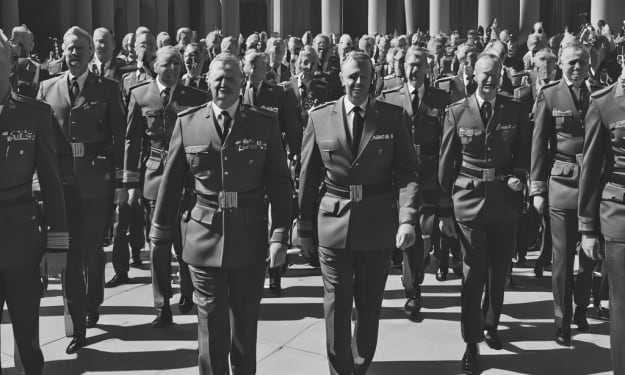Why Cancer is hard to beat ?
Understanding Cancer and Survival Strategies and how to Overcome

Cancer, a word that strikes fear into the hearts of many, represents a formidable foe that has plagued humanity for centuries. The battle against cancer is a complex and arduous one, with numerous obstacles to overcome. However, within the depths of our bodies, an epic struggle takes place, as our immune system fights valiantly against this relentless enemy.
I. The Elimination Phase
At its inception, cancer begins with a single corrupted cell. This cell loses its ability to repair its genetic code and starts multiplying rapidly. Over time, it gives rise to a tiny tumor composed of mutated cells. These cells form different genetic lineages, each competing for survival. As the tumor grows, it requires an abundance of resources to sustain itself, leading to damage in neighboring healthy cells.

When healthy cells perish due to the tumor's expansion, the immune system is alerted. Immune cells, including macrophages and natural killer cells, invade the tumor, devouring and eliminating tumor cells. These immune cells release chemical signals to activate the entire immune system, coordinating a response against the cancerous growth. Dendritic cells play a crucial role in collecting samples of dead tumor cells and activating specialized immune cells called helper T cells and killer T cells. These T cells possess a library of cancer-specific knowledge and are capable of identifying and destroying tumor cells.
Ultimately, the combined efforts of these immune cells lead to the collapse of the tumor, as the supply of resources is cut off and the tumor cells are massacred. Macrophages clean up the remains of the tumor, allowing healthy tissue to regenerate.
II. The Equilibrium Phase
Unfortunately, the battle against cancer doesn't always end with the elimination of the tumor. In some cases, the immune system inadvertently selects the fittest tumor cells, allowing them to survive and initiate a new cycle of growth. These resilient cells form new lineages and continue mutating, giving rise to a more formidable tumor.
With each cycle, the surviving tumor cells become better equipped at evading the immune response. They learn from their previous encounters, acquiring knowledge on how to hide, fight back, and access resources more efficiently. This constant adaptation and survival of the fittest tumor cells pose a significant challenge for the immune system.
III. The Escape Phase
As the tumor progresses, it develops immune resistance, creating a microenvironment that is hard for the immune system to penetrate. The tumor cells actively employ strategies to shut down immune defenses, confusing immune cells and preventing them from executing their eradication mission. This intricate network of corrupt signals and inhibitory receptors allows the tumor to shield itself from immune attacks.
The tumor's ability to evade immune responses leads to uncontrollable growth and the formation of new lineages within the tumor. If left unchecked, these mutations may enable cancer cells to explore other tissues and establish new tumor sites, further exacerbating the disease.
IV. The Devastating Effects of Cancer
Cancer's detrimental impact extends beyond its ability to evade the immune system. As the tumor grows, it occupies space and deprives healthy cells of vital nutrients. This nutrient depletion, coupled with the tumor's interference with normal bodily functions, can lead to organ dysfunction and, in severe cases, organ failure.
V. The Fight Against Cancer
Despite the challenges posed by cancer, humanity's resolve to conquer this disease remains unwavering. The field of cancer research has witnessed remarkable progress in recent years, with scientists dedicated to finding innovative ways to combat cancer.
Immunotherapy, a revolutionary approach, harnesses the power of the body's immune system to specifically target and destroy cancer cells. By modifying immune cells to enhance their cancer-killing capabilities, immunotherapy has shown promising results, outperforming traditional treatments in certain cases.
The future holds great promise for overcoming cancer. With relentless dedication, ongoing research, and advancements in technology, scientists and medical professionals strive toward eradicating cancer once and for all.
Conclusion:
The battle against cancer is an intricate and challenging endeavor. Understanding the complexity of cancer's growth, its ability to evade the immune system, and the devastating consequences it can inflict is crucial in our pursuit of victory. While the fight against cancer remains ongoing, advancements in treatments such as immunotherapy provide hope for a future where cancer can be defeated. Through unwavering determination and the collective efforts of the scientific community, we inch closer to a world where cancer is no longer a formidable adversary, but a conquered foe.






Comments
There are no comments for this story
Be the first to respond and start the conversation.